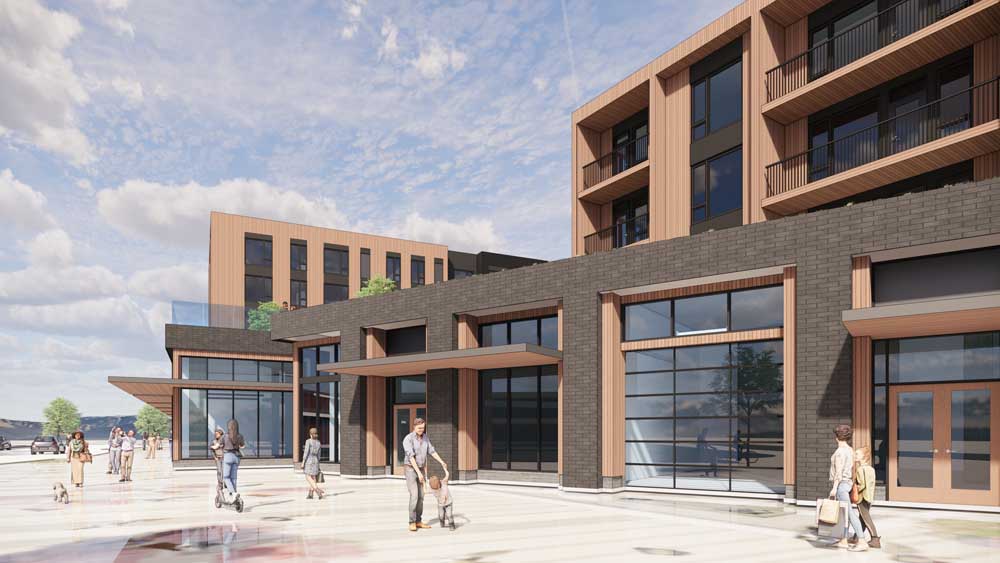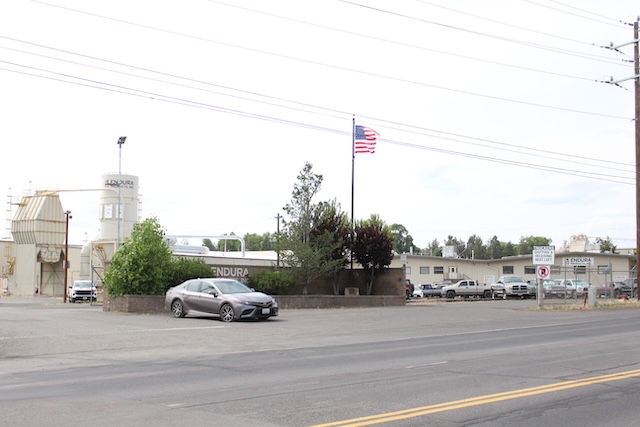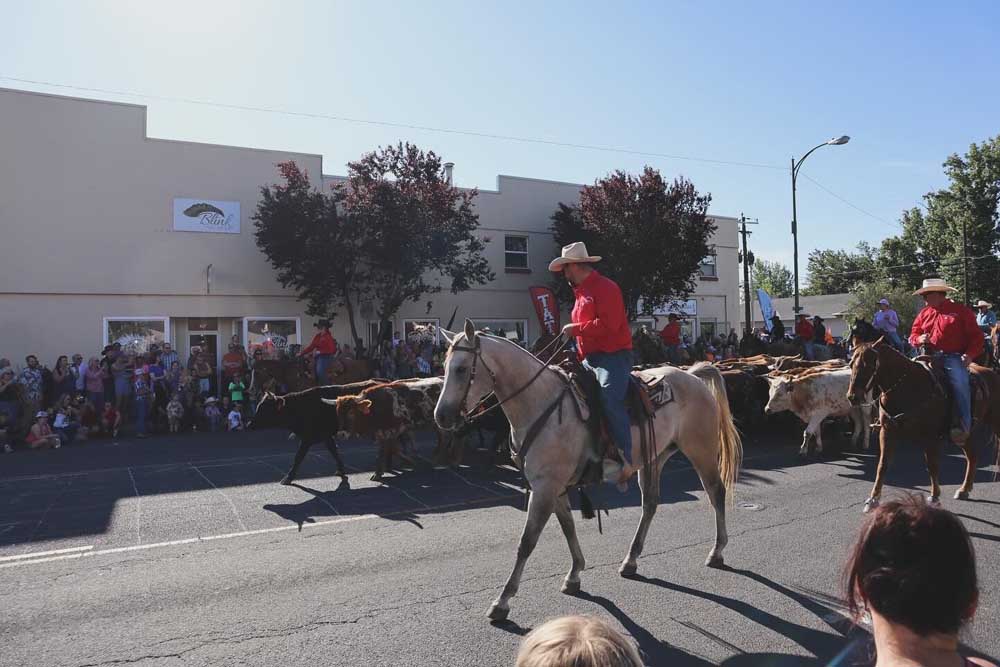Old Mill District expands its green efforts
Published 5:45 am Friday, January 24, 2025

- Kenzie Veilleux recycles coffee grounds at Sisters Coffee Co. at the Old Mill in Bend.
Recycling efforts at the Hayden Homes Amphitheater and the Old Mill District in Bend diverted nearly 200,000 pounds of trash last year from going to the landfill.
The amphitheater has been recycling for a while, but now the Old Mill District, which also oversees the operations at the outdoor venue, is stepping up its efforts to reuse, reduce and recycle.
The Old Mill District has hired a full-time sustainability manager. One of the restaurants, Greg’s Grill, composts all the table scraps and food waste. Sisters Coffee Co. recycles its spent coffee grounds by giving them to a Bend farm for composting. Clothing stores at the Old Mill District recycle plastic bags and cardboard, said Justin Alvarado, the Old Mill District’s sustainability manager.
The recycling and composting fits with founding developer Bill Smith’s core mission to turn the riverfront development from a former industrial mill site to a community hub, Alvarado said.
“Bill Smith transformed the Old Mill,” Alvarado said. “It was a huge environmental win. We want to take care of the place we live in and become stewards of the land. To do that we have to become leaders in the field and the trash we create.”
Now 30 years later, the amount of waste the amphitheater, stores and restaurants generate with single-use items is the next environmental issue to be tackled, he said.
At Greg’s Grill, General Manager Andreas Gregoriou is imposing his concern for resource management on the restaurant. Water is served upon request. Plates of food are scraped individually into compost bins and And take-out, or to-go containers are more sustainable.
Starting this year, polystyrene foam containers used for to-go food are banned in Oregon, under a measure approved by state lawmakers. The same measure bans foam packing peanuts.
“Switching from single-use to reusable across the region is really important,” said Kavi Chokshi, the program manager for the The Environmental Center’s Rethink Waste Project. “Recycling is important, but it’s one part.”
The center is always looking for ways to support businesses or groups that complement the sustainability effort, Chokshi said. Another effort he’s working on is to get businesses to invest in reusable containers that customers can get from one business and return to another for reuse or to-go food. The more businesses that partner in this, the cheaper the containers could be, Chokshi said.
Recycling is one part of the effort
The city of Bend and The Environmental Center report that one-third of all waste is food. Each year 34,000 pounds of food waste goes into Knott Landfill, Chokshi said. And food waste costs the average family about $1,800 a year.
Residents of Bend who live in the city limits can compost food waste in their yard waste bins, Chokshi said.
The Knott Landfill, is predicted to be full in just five years, so it’s important to look at trash in ways that can reduce the amount that goes there.
More work to do
Hayden Homes Amphitheater was recognized recently by the entertainment company Live Nation as one of the country’s most sustainable live venues. Concert goers use aluminum cups rather than compostable or disposable ones. The aluminum cups can be reused or recycled, like cans, Alvarado said, keeping them out of the landfill.
Since 2017, the amphitheater has worked on waste management. While the program has shifted, the core of the operation has been to diversion of waste from the landfill. In 2022, the venue diverted 76.85% of the waste, about 24 tons of material. In 2024, it grew to 87% during the 56-show season.
The goal, according to the amphitheater’s annual report, is to get to 90% landfill diversion rate.
“The work of our Green Team has done at the amphitheater has been phenomenal,” said Beau Eastes, the Old Mill District’s marketing director. “We’re thrilled to take some of that knowledge and apply it to the rest of the Old Mill District. Sustainability has always been important to us beyond the amphitheater — the river trail for pedestrians and cyclists being a great example.
“We’re really hoping to take it up another level with Justin (Alvarado) and the lessons he’s learned.”
At the Old Mill District, stores like J. Jill, Victoria’s Secret, Vanilla, Banana Republic, Athleta, Lululemon and Francesca’s are all recycling the thin plastic bags that new clothing comes in from the manufacturer, Alvarado said. Last year the district recycled 350 pounds of these plastic bags. In November, the month Alvarado started, 162 pounds of plastic were recycled.
“We’re doing what we can at a local level,” Alvarado said. “Composting is the No. 1 weight we diverted. Food waste is the biggest metric.”
While the amphitheater pays people to man the trash stations, it also plans to replace compostable utensils with bamboo, waxed popcorn bags with paper bags and expand the Old Mill District’s composting and recycling efforts.
Separating biodegradable products from those that don’t break down is important, as well as sorting the waste properly.
“While that’s not customer facing, we’re looking into getting recycling bins installed along the walkways throughout the district,” Alvarado said. “We have one water fountain by the coffee shop, but we’re looking at swapping that out for a water bottle refill station. Hopefully that will encourage people to fill their water bottles instead of buying one.”







